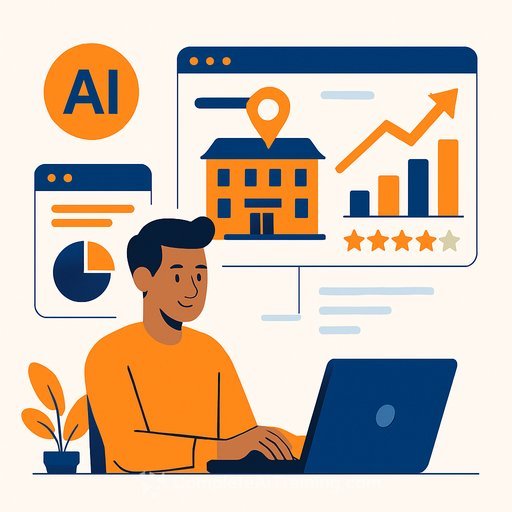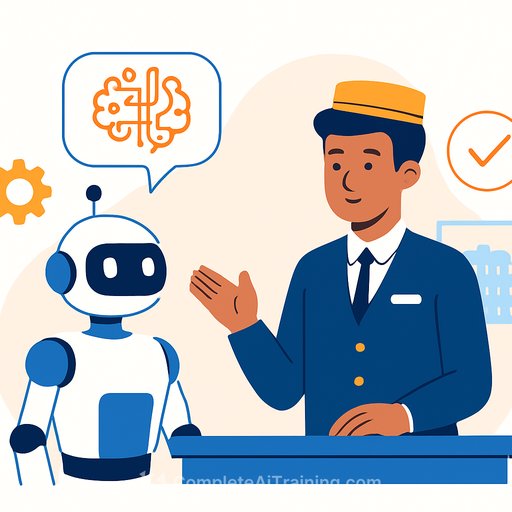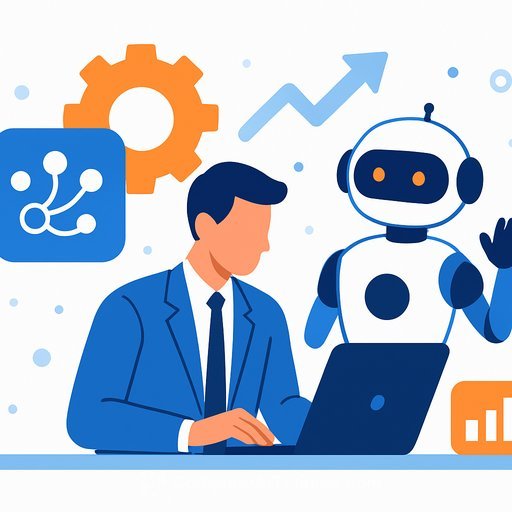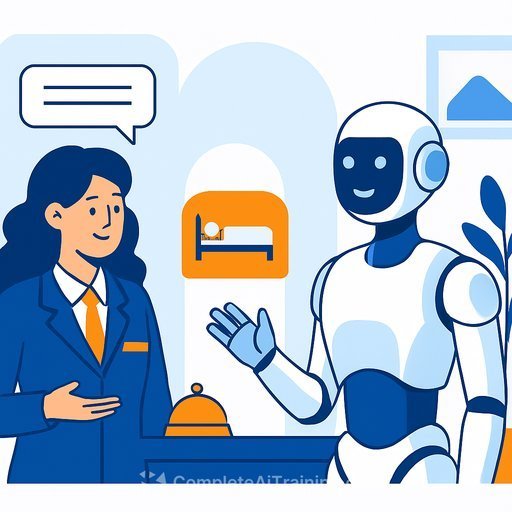How AI Is Resetting the Hotel Playbook: From Personal Guest Experiences to Bigger Margins and Real Advantage
Published on November 5, 2025
Hotels are shifting from passive service to proactive experience design. AI sits inside that shift: predicting preferences, surfacing offers at the right moment, and adjusting rates based on live demand. The result is better stays for guests and healthier unit economics for operators.
From room service to data service
Your PMS, CRM, and messaging tools are no longer just record keepers. Combined with AI, they forecast what a guest will ask for next and tee it up before the request arrives. Think 24/7 chat, instant answers, and rate decisions that reflect real intent, not just historical averages.
The upside: fewer missed moments, faster responses, and a clear view of the guest across channels. That's where expectation meets execution.
New revenue without extra friction
AI-powered messaging turns idle moments into spend. Guests get relevant prompts for late checkout, spa, F&B, parking, and local experiences-without feeling spammed. Teams get fewer repetitive requests and more time for high-touch interactions.
- Targeted upsell flows via SMS/WhatsApp at check-in, mid-stay, and pre-departure.
- Automated offer testing to learn what converts by segment and timing.
- Service automation and robotics that have helped some operators cut specific costs by 30-40%.
As direct relationships deepen, reliance on third-party platforms eases-and your contribution margin thanks you.
Loyalty in the age of algorithms
Preference data (room temp, pillows, dining times, interests) turns a stay into something that feels personal. That's the stuff guests remember-and repeat. Research from hospitality academics suggests AI can raise satisfaction when paired with human warmth and judgment.
Let AI handle the repeatable so staff can focus on what only humans do well: empathy, intuition, and moments that create stories.
Winning the booking battle
Distribution is shifting fast. "Agentic" travel planners will assemble trips end-to-end, and they'll favor properties with clean, machine-readable data. If your content, rates, and inventory are structured, you'll show up more often in future booking flows.
A practical step: implement lodging structured data so search and agents can parse your offer set. See Google's guidance on Lodging structured data. For industry trends and case studies, Hospitality Net's AI coverage is a solid reference point: AI in hospitality.
Lean operations, stronger profits
AI supports housekeeping forecasting, energy orchestration, predictive maintenance, and post-stay audits. One "brain" coordinating HVAC, lighting, and occupancy data cuts waste and lifts sustainability scores. That's good for the P&L and your ESG narrative.
The model is shifting from pure volume to quality revenue: more direct bookings, higher spend per stay, lower service costs, and fewer write-offs.
Keep the human in hospitality
Guests still want people, not just prompts. The sweet spot is automation that removes friction while staff deliver connection. Don't chase novelty for novelty's sake-gadgets that create awkward moments erode trust fast.
Use AI to free time, then reinvest that time where it matters: recognition, recovery, and surprise-and-delight.
What this means for your property
- Map your guest journey and flag repetitive tasks for automation within 30 days.
- Stand up an AI messaging pilot focused on two upsell offers and one service use case.
- Unify core data (PMS, POS, CRM) into a single profile with consent and clear preferences.
- Add structured data to your website content and keep inventory/rate feeds clean.
- Set guardrails: privacy policy updates, opt-in flows, and human-in-the-loop for edge cases.
- Upskill your team so tech becomes second nature, not a burden. If you need a curated starting point, see AI courses by job role.
Hurdles to plan for
Budgets, fragmented systems, and manual reporting can slow momentum. Tools won't deliver ROI if workflows stay the same. Privacy, data security, and guest trust require discipline and transparent comms.
Start with pilots, measure clearly, and scale what works. Kill what doesn't.
What's next
Expect deeper use of generative tools: virtual concierges that anticipate needs, price models reacting in near real time, and distribution that reads preference signals without intermediaries. The win goes to teams that integrate systems, standardize data, and move quickly with guardrails.
If you're ready to skill up your staff, explore practical resources here: Latest AI courses. The properties that act now won't be guessing later-they'll be booked.
Your membership also unlocks:





